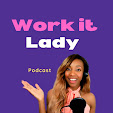How a Vegan Diet May Lead to Low Iron Levels (and How to Fix It)
If you're following a vegan diet, you might already know the importance of getting the right nutrients to keep your body healthy. But one nutrient that often goes under the radar is iron. While it’s essential for good health, a vegan diet can sometimes lead to low iron levels. In this post, we’ll explore why this happens, the signs of iron deficiency, and how to make sure you're getting enough iron to stay healthy and energized.
Why Is Iron Important?
Iron is a crucial mineral that plays a vital role in your body. It helps produce hemoglobin, the protein in your red blood cells that carries oxygen throughout your body. Without enough iron, you may experience fatigue, weakness, and even more serious health issues, like anemia. So, it's really important to make sure you're getting the right amount of iron in your diet.
How a Vegan Diet Can Lead to Low Iron
There are two types of iron found in food: heme and non-heme. Heme iron is the form found in animal products like meat, poultry, and seafood. The great thing about heme iron is that it’s more easily absorbed by the body. However, for those following a vegan diet, non-heme iron is the primary source. Non-heme iron is found in plant-based foods such as lentils, beans, tofu, quinoa, spinach, and fortified cereals.
The problem is that non-heme iron is not as easily absorbed by the body as heme iron. A 1992 study published in The American Journal of Clinical Nutrition notes that non-heme iron absorption can be influenced by several factors, such as the presence of other foods in your meal. Some foods, like coffee, tea, and dairy, can actually block iron absorption.
Additionally, vitamin B12 (another nutrient that is often lacking in vegan diets) plays a role in red blood cell production, and a deficiency can indirectly affect how well your body uses the iron you consume. So, even if you're eating iron-rich foods, your body might not be absorbing or utilizing it as effectively as it should.
Signs You Might Have Low Iron
So, how do you know if you have low iron levels? Some of the most common signs of iron deficiency include:
- Fatigue or tiredness, even after a good night’s rest
- Pale skin
- Brittle nails
- Dizziness or lightheadedness
- Shortness of breath during physical activity
If you're experiencing any of these symptoms, it might be a good idea to get your iron levels tested by a healthcare professional.
How to Keep Your Iron Levels Up on a Vegan Diet
While low iron can be a concern on a vegan diet, the good news is that you can take steps to ensure you’re getting enough iron. Here are some tips to help you boost your iron intake and maximize absorption:
Eat Iron-Rich Foods: Focus on plant-based iron sources like lentils, chickpeas, beans, quinoa, tofu, and fortified cereals. These foods are packed with iron, but remember that the absorption is not as efficient as animal-based iron, so it’s important to be mindful of how much you’re consuming.
Pair Iron with Vitamin C: Vitamin C can significantly boost the absorption of non-heme iron. So, when you're eating iron-rich foods, try to pair them with foods that are high in vitamin C, such as bell peppers, citrus fruits, tomatoes, and broccoli. For example, have some orange slices with your lentils, or enjoy a bell pepper with your quinoa.
Avoid Iron Blockers: Certain foods and drinks can inhibit iron absorption, so try to limit consuming them with your iron-rich meals. These include coffee, tea, and foods high in calcium (like dairy). While these are important parts of many diets, consuming them separately from iron-rich meals can help ensure your body absorbs more iron.
Consider Supplements (with Caution): If you’re concerned that you’re not getting enough iron despite following these tips, consider speaking with a healthcare provider about taking an iron supplement. Iron supplements can be a good way to boost your levels, but always check with your doctor before adding supplements to your routine to avoid overdoing it.
Final Thoughts
Iron is a key nutrient that supports overall health, and while it’s possible to get enough iron on a vegan diet, it requires a little more attention. By being mindful of the types of iron you're eating, pairing iron-rich foods with vitamin C, and avoiding iron blockers, you can help ensure you're absorbing enough of this vital mineral.
If you’re experiencing signs of low iron or just want to make sure you’re on track, it’s always a good idea to talk to your healthcare provider. They can help guide you toward the best practices for your specific health needs.
Have you experienced any challenges with iron on a vegan diet? Or do you have any tips for boosting iron absorption? Share your thoughts in the comments below!
#VeganDiet #IronDeficiency #PlantBasedDiet #VeganNutrition #IronAbsorption #VeganIron #HealthyEating #VeganTips #IronRichFoods #VeganHealth #NonHemeIron #VeganLifestyle #IronSupplements #VeganIronSources #HealthyVegan



No comments:
Post a Comment